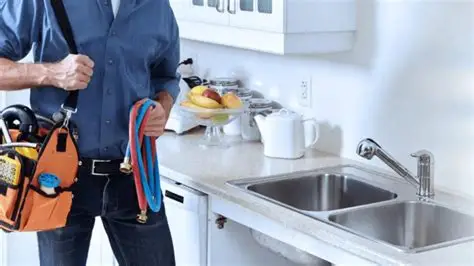Embarking on the journey of home repair contractor services, this guide aims to provide a comprehensive overview of what to expect and how to navigate the process effectively.
As we delve into the intricacies of finding the right contractor, understanding different types of services, and managing budgets, you'll gain valuable insights to make informed decisions for your home projects.
Finding a Home Repair Contractor
When it comes to finding a home repair contractor, it is crucial to do your research and choose a reputable professional who can get the job done right. Here are some tips to help you navigate the process:
Checking for Licenses, Insurance, and References
Before hiring a home repair contractor, always check for their licenses, insurance, and references to ensure you are working with a legitimate and reliable professional. Here's how you can do it:
- Licenses:Verify that the contractor holds all the necessary licenses required by your state or local authorities. This ensures that they have the proper training and qualifications to perform the work.
- Insurance:Make sure the contractor has insurance coverage, including liability insurance and workers' compensation. This protects you from any potential accidents or damages that may occur during the project.
- References:Ask the contractor for references from past clients and take the time to contact them. This will give you insight into the contractor's work quality, reliability, and professionalism.
Getting Multiple Quotes
It is essential to gather multiple quotes from different home repair contractors before making a final decision. This allows you to compare prices, services offered, and the overall value you will receive. Here's why it's important:
- Cost Comparison:Getting multiple quotes helps you understand the average cost of the project and avoid overpaying for services.
- Service Evaluation:By obtaining multiple quotes, you can assess the different approaches and solutions proposed by each contractor, helping you make an informed decision.
- Negotiation:Having multiple quotes gives you leverage to negotiate with contractors and potentially secure a better deal for your home repair project.
Types of Home Repair Services
When it comes to home repair services, contractors typically offer a wide range of options to address various issues that homeowners may face. These services can vary from minor repairs to major renovations, each requiring different levels of expertise and resources.
Minor Repairs
- Fixing leaky faucets and pipes
- Repairing drywall holes
- Replacing broken tiles or flooring
- Painting walls and ceilings
Major Renovations
- Kitchen or bathroom remodels
- Room additions or extensions
- Roof repairs or replacements
- Foundation repairs
Matching the contractor's expertise with the specific repair needs is crucial to ensure the job is done correctly and efficiently. For minor repairs, a general handyman may be sufficient, while major renovations may require a specialized contractor with experience in that particular area.
It is important for homeowners to communicate their needs clearly and to research contractors thoroughly before making a decision to hire.
Working with a Home Repair Contractor
When working with a home repair contractor, effective communication is key to ensuring the project runs smoothly and meets your expectations. Here are some tips on how to work effectively with a home repair contractor:
Communicating Expectations and Goals
Effective communication is essential when working with a home repair contractor. Clearly Artikel your expectations and goals for the project from the beginning. Be specific about the work you want to be done, the materials to be used, and the timeline for completion.
Encourage open communication and address any concerns or questions promptly to avoid misunderstandings.
Creating a Detailed Contract
Before starting the project, it is important to create a detailed contract outlining the scope of work, timeline, and payment schedule. The contract should include specifics such as the materials to be used, the cost of labor and materials, the start and end dates of the project, and any warranties or guarantees.
Review the contract carefully and make sure both parties agree on all terms before signing.
Handling Unexpected Issues or Changes
During the repair process, unexpected issues or changes may arise. It is important to address these issues promptly and communicate with the contractor about any necessary changes to the project. Be flexible and open to finding solutions together to ensure the project stays on track.
Keep a record of any changes in writing and update the contract if needed to reflect the modifications.
Budgeting for Home Repairs
Planning and budgeting for home repairs is crucial to ensure that your project stays on track and within your financial means. Here are some tips to help you budget effectively and save money on your home repair projects.
Cost-Saving Strategies when Working with a Contractor
- Get multiple quotes from different contractors to compare prices and services.
- Consider purchasing your own materials to avoid markup costs from the contractor.
- Be flexible with the timing of your project to take advantage of off-season discounts.
- Communicate openly with your contractor to negotiate prices and find cost-effective solutions.
Financing Options for Larger Repair Projects
- Home Equity Loans: Borrow against the equity in your home to finance major repairs.
- Personal Loans: Consider taking out a personal loan with a fixed interest rate for smaller repair projects.
- Credit Cards: Use a credit card with a low interest rate or promotional period to cover repair costs temporarily.
- Government Loans: Look into government programs that offer low-interest loans for home repairs, especially for essential upgrades like energy efficiency improvements.
Home Repair Contractor vs. DIY
When it comes to home repairs, deciding between hiring a professional contractor or taking the do-it-yourself (DIY) approach can be a tough choice. Each option has its own set of advantages and disadvantages, depending on the complexity of the repair, your skill level, and the time and resources you have available.
Advantages and Disadvantages of Hiring a Contractor
Contractors are trained professionals with the expertise and experience to handle a wide range of home repairs efficiently and effectively. They can often complete the job faster than if you were to tackle it yourself, saving you time and hassle.
Additionally, contractors typically have access to specialized tools and equipment that may be necessary for certain repairs.
On the flip side, hiring a contractor can be more expensive than doing the repair yourself. You will need to factor in labor costs, materials, and any additional fees. There is also the risk of hiring an unreliable contractor who may not deliver quality work or finish the project on time.
When to Hire a Professional
It is advisable to hire a professional contractor for complex or dangerous repairs that require specialized skills or tools. Examples include electrical work, plumbing issues, or structural repairs. Attempting these repairs yourself without the necessary knowledge and experience could result in costly mistakes or even safety hazards.
Another scenario where hiring a contractor is recommended is when you are short on time or lack the confidence to complete the repair successfully. Contractors can provide peace of mind knowing that the job will be done right the first time.
Safety Considerations
- Electrical work: Working with electricity can be extremely dangerous if not done correctly. It is crucial to hire a licensed electrician for any electrical repairs to avoid the risk of electrical shock or fire hazards.
- Structural repairs: Structural issues in a home can compromise its stability and safety. It is best to consult with a professional contractor to assess and address any structural concerns to prevent further damage.
- Roof repairs: Climbing onto a roof to perform repairs can be risky without the proper safety equipment and training. Hiring a roofing contractor is the safer option to avoid accidents or falls.
Outcome Summary
In conclusion, the key to successful home repairs lies in the partnership with a reliable contractor who understands your needs and delivers quality workmanship. By following the tips and guidelines Artikeld in this guide, you're well-equipped to embark on your next home repair journey with confidence.
Quick FAQs
How can I verify the credentials of a home repair contractor?
It's important to check for licenses, insurance coverage, and references. You can also look up reviews and ratings online to gauge their reputation.
What should be included in a contract with a home repair contractor?
A detailed contract should Artikel the scope of work, timeline for completion, payment schedule, and any specific materials or products to be used.
Is it better to hire a home repair contractor or attempt repairs myself?
While DIY can be cost-effective for minor tasks, hiring a professional ensures quality work for complex projects and compliance with building codes.
How can I save money on home repair projects?
Discuss cost-saving strategies with your contractor, explore financing options, and consider doing some tasks yourself if feasible.
What safety precautions should I consider when deciding between DIY and hiring a contractor?
For more complex or hazardous repairs, it's safer to hire a professional to avoid potential injuries or code violations.













